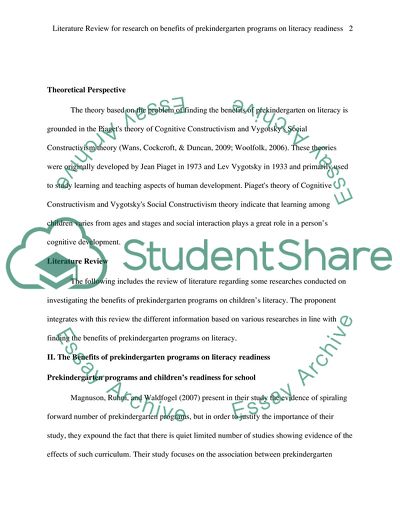Cite this document
(“Literature Review for research on benefits of prekindergarten programs Essay”, n.d.)
Retrieved from https://studentshare.org/education/1453330-literature-review-for-research-on-benefits-of-prekindergarten-programs-on-literacy-readiness
Retrieved from https://studentshare.org/education/1453330-literature-review-for-research-on-benefits-of-prekindergarten-programs-on-literacy-readiness
(Literature Review for Research on Benefits of Prekindergarten Programs Essay)
https://studentshare.org/education/1453330-literature-review-for-research-on-benefits-of-prekindergarten-programs-on-literacy-readiness.
https://studentshare.org/education/1453330-literature-review-for-research-on-benefits-of-prekindergarten-programs-on-literacy-readiness.
“Literature Review for Research on Benefits of Prekindergarten Programs Essay”, n.d. https://studentshare.org/education/1453330-literature-review-for-research-on-benefits-of-prekindergarten-programs-on-literacy-readiness.


